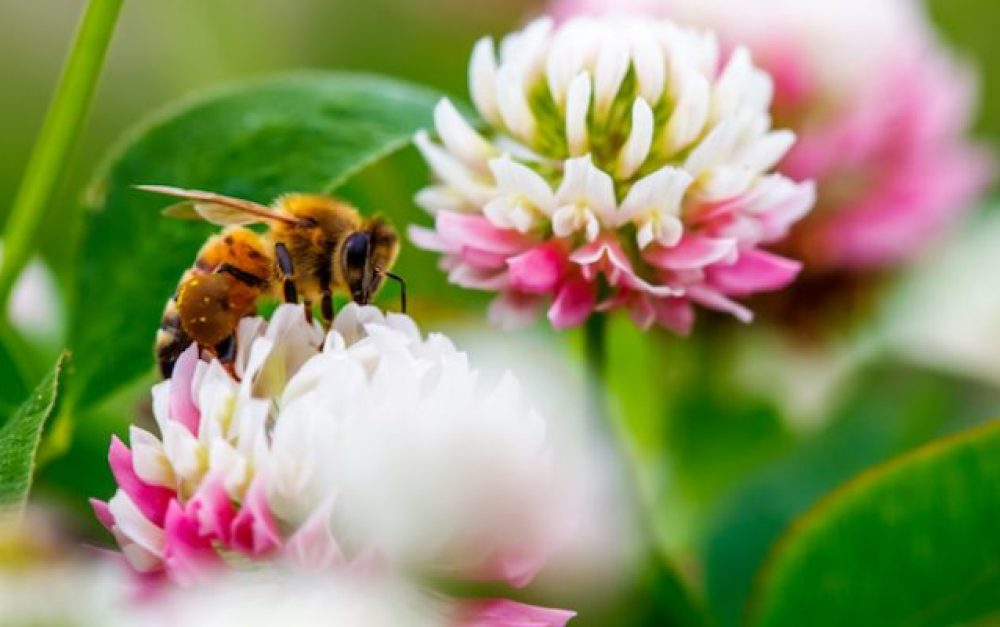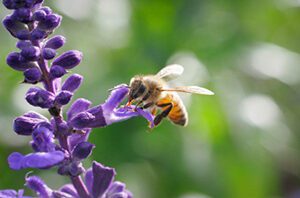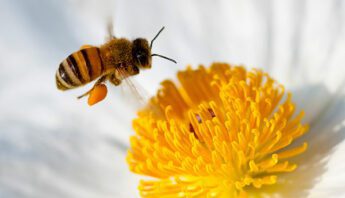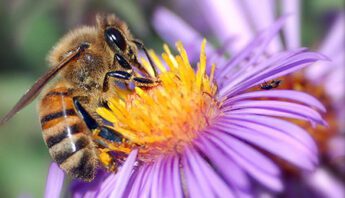For Immediate Release: May 3, 2017
Facing pressure from the pesticide lobby, California’s Pollinator Protection Act (SB 602) would create consistent and clear labels for seeds and plants pre-treated with neonicotinoid pesticides.
Sacramento, CA – As California considers legislation that would provide labels for seeds and plants that are pre-treated or pre-coated with bee-harming pesticides, two major retailers — True Value and Walmart — announced steps today to phase out the use of the products in their supply chain.
“Despite pressure from the pesticide industry, gardeners and retailers are responding to the science. As two more major retailers commit to phasing out neonicotinoid pesticides on plants they sell, California legislators have an opportunity to create clear and consistent labels to allow consumers to purchase plants that are better for bees,” said Paul Towers, organizing director and policy advocate at PAN.
California’s Pollinator Protection Act (Senate Bill 602, Allen-Wiener) would require mandatory labeling for any seed or plant that has been pre-coated or pre-treated with neonicotinoids, or “neonics.” But the legislation has faced significant opposition from pesticide manufacturers, and some industrial agricultural interest groups, that challenge both the science behind bee declines and the preponderance of evidence linking pollinator die-offs to pesticide exposure, among other factors.
“It is great to see well-known retailers taking action to phase out products that include these harmful pesticides. I look forward to the passage of SB 602 so that California can enact a similar policy statewide,” said Senator Ben Allen (D-Santa Monica), a lead author of the bill, which is sponsored by Bee Smart California, a coalition of beekeepers, farmers, food and environmental organizations dedicated to protecting bees and other pollinators.
Testing analyses conducted by PAN North America, Friends of the Earth, Center for Food Safety and the Pesticide Research Institute in 2013, 2014 and 2016 demonstrated the presence of bee-toxic neonics in more than half of bee-attractive flowers tested. The 2016 analysis found that 23 percent of flowers and trees tested nationally — and 15 percent tested in California — contain neonicotinoid insecticides at levels that can harm or kill bees. And all of the nursery plant samples where neonics were detected had the potential to harm or even kill bees.
Large retailers Home Depot and Lowe’s already made commitments to phase out use of these pesticides, and have also started to provide some form of labeling. Last year’s data demonstrated that these two companies are making progress toward that goal. With today’s news, True Value will phase out neonics on plants and products by 2018 and Walmart has already removed neonics from 80 percent of their flowering plants and nearly all of their products.
“The actions taken by these national retailers show that there is broadening support for reducing and eliminating use of these awful pesticides. We need to continue to work to prevent the rapid and unprecedented collapse of bee colonies, which is threatening food security in the entire country, by enacting policies like SB 602,” said Scott Wiener (D-San Francisco), co-author of the bill.
Greenhouse Grower’s 2016 State Of The Industry Survey found 74 percent of growers who supply mass merchants and home improvement chains said they would not use neonicotinoid insecticides in 2016.
“With today’s announcement, fewer nurseries and garden stores are selling plants pre-treated with systemic neonicotinoid insecticides,” said Terry Oxford, a beekeeper with UrbanBeeSF. “Yet it’s still not possible for gardeners and landscapers to be sure that the seeds, plants and trees they select at the store will be safe for bees and other pollinators. Labels would provide that level of security. California legislators should support SB 602.”
Bees and other pollinators, essential for every one in three bites of food we eat, are in great peril. The United Nations estimates that 40 percent of invertebrate pollinator species, including bees and butterflies, are on the brink of extinction. Research indicates that bee-harming neonicotinoids are a primary factor of declining populations. These insecticides have been responsible for several high profile bee kills from high doses of the pesticides, and a strong and growing body of science shows that neonics contribute to bees’ impaired reproduction, learning and memory, hive communications and immune response at doses far below those that are lethal.
###
Contact: Paul Towers, PAN, 916-216-1082, ptowers@panna.org
Pesticide Action Network (PAN) North America works to create a just, thriving food system. For too long, pesticide and biotech corporations have dictated how we grow food, placing the health and economic burdens of pesticide use on farmers, farmworkers and rural communities. PAN works with those on the frontlines to tackle the pesticide problem — and reclaim the future of food and farming.







